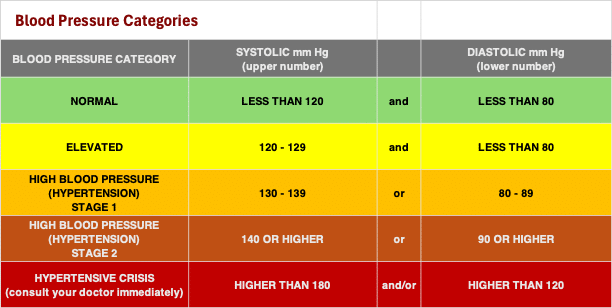Hypertension, Screening, Early Detection and Prevention
In light of national high blood pressure education month, lets go over the newest recommendations for screening for high blood pressure.
High blood pressure, also known as hypertension, is a major risk factor for serious health conditions such as heart disease (including heart attacks and congestive heart failure), stroke (brain attack or brain bleed), and kidney disease.
In 2017, the American College of Cardiology released updated guidelines that redefined high blood pressure as 130/80 mmHg or higher for all adults. Previously, hypertension was diagnosed at 140/90 mmHg for adults under 65 and 150/80 mmHg for those 65 and older. This 20-point shift in the guidelines allows healthcare providers to identify at-risk patients earlier—an important step toward prevention and better health outcomes.
One of the challenges with hypertension is that it often has no symptoms, which is why it’s known as the “silent killer.” Many individuals may not realize they have high blood pressure until it leads to a serious complication.
Risk factors for developing hypertension include:
- Family history
- High salt (sodium) intake
- Obesity
- Sleep apnea
- Kidney disease
- A sedentary lifestyle
- Certain medications (e.g., NSAIDs like Ibuprofen, Advil, or Aleve)
- Excessive alcohol or caffeine consumption
- Hormonal imbalances or metabolic issues
- “White coat syndrome” (elevated readings in a medical setting)
Annual blood pressure screening is recommended for all persons over the age of 18. If you have a family history of hypertension or other risk factors, screening may begin earlier. Monitoring blood pressure is a standard part of your yearly wellness exam.
Take charge of your heart health. Early detection and lifestyle changes can go a long way in preventing serious complications. Talk to your healthcare provider about your numbers and how to keep them in a healthy range.
~ Dr. Edward Espinosa
